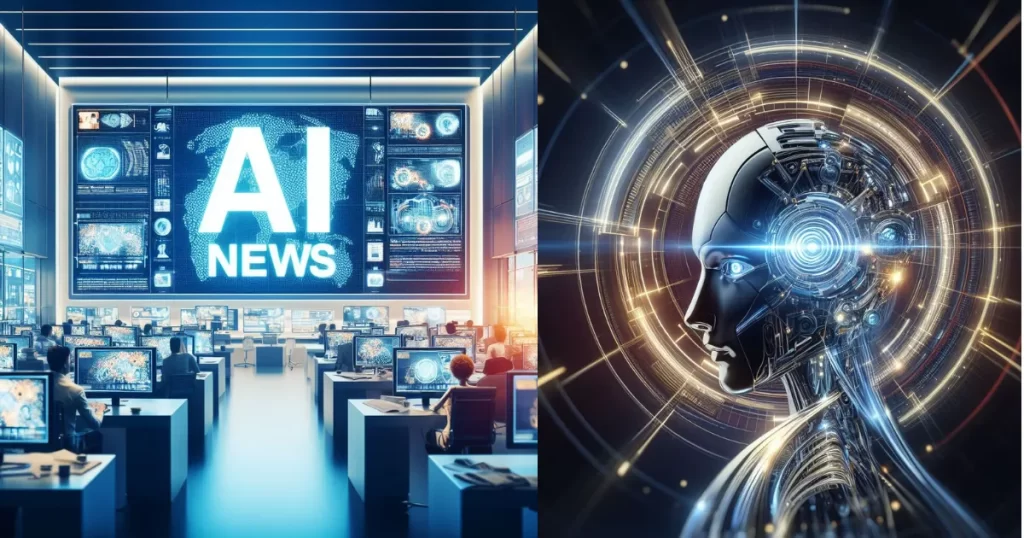Paraphrased and Simplified Article
Agentic AI is a new notion in artificial intelligence that is poised to transform how we interact with technology. Agentic AI, unlike classical AI, functions independently rather than following explicit instructions or responding to orders. This implies it can make decisions, plan activities, and learn from its experiences while following the objectives defined by its human designers. This new type of AI has the potential to significantly affect a variety of sectors, altering how firms function and how complicated challenges are solved.
Understanding Agentic AI
Agentic AI distinguishes out because it can behave autonomously to achieve certain goals. Traditional artificial intelligence systems normally respond to cues or execute specified tasks, but agentic AI goes beyond this. It can make autonomous judgments, plan several stages to achieve a job, and even learn from the results of its activities. For example, if charged with developing a website, agentic AI might design the framework, generate content for each page, write the appropriate code, create images and graphics, and test the website for functioning and modifications.
Think of agentic AI as a sophisticated digital assistant. It may anticipate your wants and provide unique solutions in addition to just following your instructions. This makes it an effective tool for addressing complicated issues and increasing efficiency.
Why Agentic AI is Gaining Attention
The excitement surrounding agentic AI stems from its potential to alter how we utilize technology. One of the most appealing features is its greater autonomy, which allows it to run with less human interference. This makes agentic AI appropriate for activities that need continuous monitoring or quick decision-making. Furthermore, by merging machine learning with goal-oriented behavior, agentic AI improves problem-solving skills, resolving complicated challenges in novel and efficient ways. Another important trait is their flexibility, since these systems may update their tactics in response to new information or environmental changes, making them extremely successful in dynamic circumstances.
Furthermore, agentic AI may give highly tailored experiences and solutions by learning from user interactions in order to better meet individual demands. Its scalability is also important; once established, agentic AI may be utilized in a variety of businesses, possibly revolutionizing whole sectors. Furthermore, agentic AI’s better communication skills enable it to grasp and analyze normal language, allowing people to communicate with and direct these systems more effectively.
Real-World Applications
The applications of agentic AI are numerous and diverse. In business, it might self-manage activities such as supply chains, inventories, and logistics, resulting in increased efficiency and cost savings. In healthcare, agentic AI might act as a 24-hour health assistant, monitoring patients, changing therapies, and even detecting health problems before they worsen. Other potential areas of impact include software development, where agentic AI could manage entire development lifecycles; cybersecurity, where it could monitor network traffic and respond to threats in real time; and human resources, where it could streamline processes like candidate screening and employee training.
Challenges and Considerations
Despite its potential, agentic AI poses obstacles. Ethical considerations are crucial, as these systems must make judgments that are consistent with human values. The complexity of AI models can result in what is known as the “black box” problem, in which these systems’ decision-making processes are difficult to comprehend or interpret, raising questions about responsibility and trust. Furthermore, data privacy and security are major problems, particularly as agentic AI grows more autonomous and handles more sensitive data. There is also the potential influence on the labor market to consider, as agentic AI may replace some occupations, necessitating a change in worker skills and education.
Looking Ahead
Agentic AI has significant potential benefits, but it also presents obstacles that must be carefully considered. As research advances, we should expect to see increasingly complex AI bots that collaborate with humans. The goal will be to strike the correct mix between autonomy and human monitoring so that these technologies improve rather than replace our talents.
This article is a paraphrased summary based on Bernard Marr’s original piece published on Forbes on September 6, 2024. You can check out the full article here.

I’m Voss Xolani, and I’m deeply passionate about exploring AI software and tools. From cutting-edge machine learning platforms to powerful automation systems, I’m always on the lookout for the latest innovations that push the boundaries of what AI can do. I love experimenting with new AI tools, discovering how they can improve efficiency and open up new possibilities. With a keen eye for software that’s shaping the future, I’m excited to share with you the tools that are transforming industries and everyday life.

